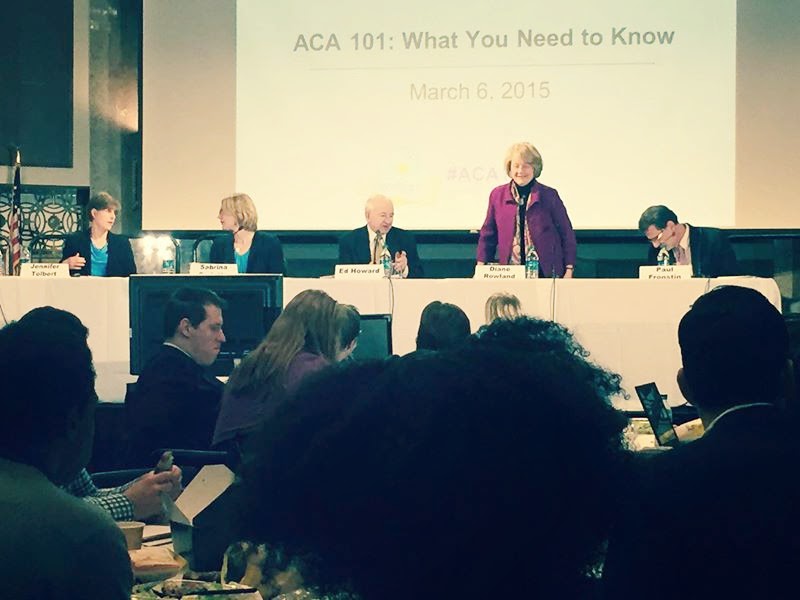My Medicare/Medicaid Story
For Medicare and Medicaid's 50th anniversary which is this year, CMS has requested CMS employees and alumni to submit stories concerning our contributions to the program. Here is what I submiited.
------------------------------------------
I worked at CMS from
1979-2006. Where I had the privilege to work on many important projects. For 13
years, I was in the Office of Research and Demonstrations (ORD) and the
remaining 13 years in the Managed Care Policy Division. I want to single
out 4 stories which have particular significance for me.
1) The Evaluation of the Obstetrical Access
Project.
I served as the
evaluation project officer for this grant.
This project was
written up in the Health Care Financing Review in 1987. This project expanded
the women eligible to participate in the Medicaid and included an expanded set
of prenatal care services of psychosocial, health education and nutrition
services. The project achieved a 33% reduction in low-birth-weight babies vs. a
matched control group. This was cited as an incredibly successful
project. The study was cited as a key finding when Congress twice expanded the Medicaid
prenatal care program in 1985 and 1987. This has resulted in a tremendous
increase in the number of healthy infants being born and savings both short
term and long term in costs to the U.S.
2) Home Health Prospective Payment Demonstration
From 1985-1993, I
served as the evaluation project officer for this demonstration. During
this time period, I worked with the evaluation contractor, Mathematica Policy
Research, to develop the case-mix system to be used in the demonstration. The
system that we developed was incorporated for the most part into the Outcome and Assessment Information Set
(OASIS) which CMS (then called HCFA) implemented as written into
legislation in the 1998 Budget bill. This prospective payment system has
resulted in tremendous savings to the Medicare program and is still used today.
3) Home Health Quality of Care Demonstration
In 1985, I proposed that
CMS (HCFA) develop an outcome based approach to the quality of care for home
health services. This approach focused on the following outcome
measures: re-hospitalizations and activities of daily living (ADLs)
such as eating, bathing,
dressing, toileting, and transferring. These ADLs are considered key to
successful rehabilitation of home health patients. CMS and the Robert
Wood Johnson Foundation combined to award a contract to the University of
Colorado to develop such a measurement system. I served as project
officer for the first 5 years of that contract. After successful completion of
that contract, which occurred after I left ORD, another contract was awarded to
test these outcome measures in a demonstration. That demonstration
resulted in a 25% reduction in re-hospitalizations, which represents a dramatic
savings to the Medicare program. Those measures were incorporated into
the OASIS system mentioned above to ensure that not only was payment optimal
but also to maximize the quality of care outcomes.
4) Medicare + Choice regulations
In the 1997 Budget
bill, Congress authorized the Medicare+Choice program. This program
significantly expanded the Medicare HMO program with many new policy features
such as case mix payment, bidding, rate setting, marketing plans, access and
quality of care provisions, etc. Congress mandated that CMS (HCFA) issue
interim final rules within 9 months of enactment, an incredibly short period of
time for such rule development. I was tasked with coordinating the efforts of
23 workgroups which were assigned the different provisions of these
rules. Five months after enactment, we held a public meeting to layout
some of our preliminary thoughts and questions and receive the public's input
on these issues. In developing the rules, we had to brief
CMS officials, Department officials and OMB staff. We published the
interim final rules exactly on our deadline which was considered an incredible
accomplishment. Many of these provisions were incorporated into the current
Medicare Advantage program.






